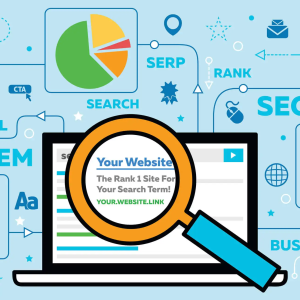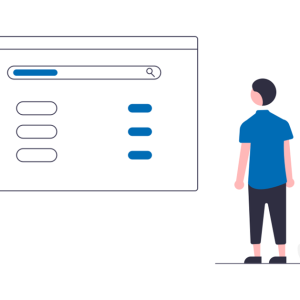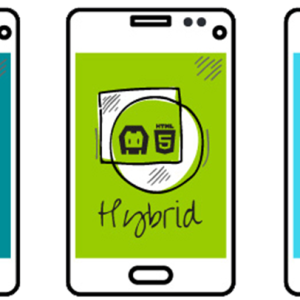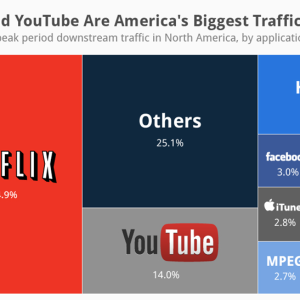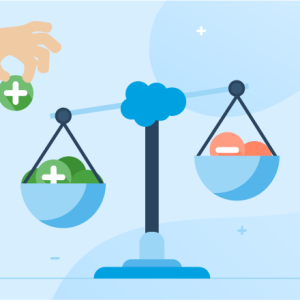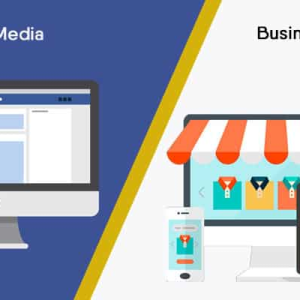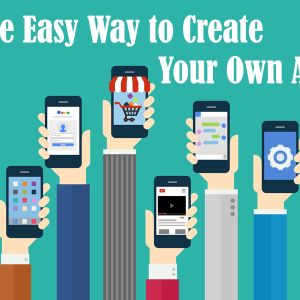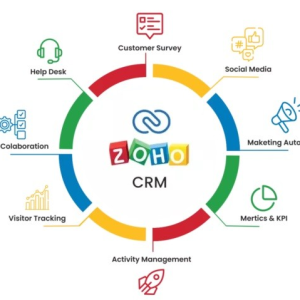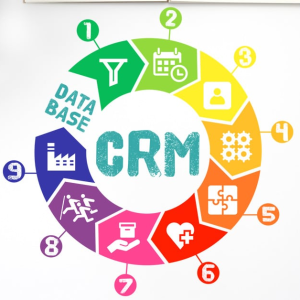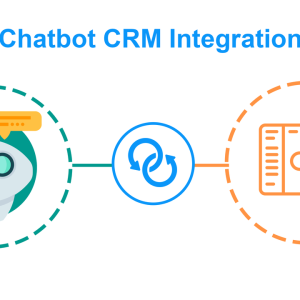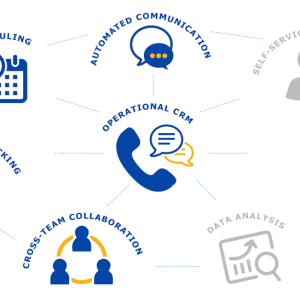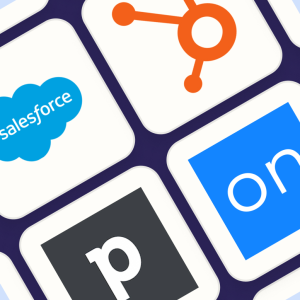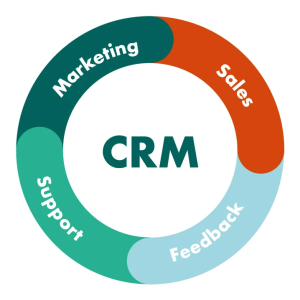For every $1 invested, CRM yields an average ROI of $8.71.
Nucleus Research
Introduction

Zoho CRM is a powerful software tool that can help you manage your customer relationships more effectively. It enables you to keep track of all your customer data in one place, making it easy to import and export information as needed. You can also use this tool to generate reports detailing various aspects of your customer base. In short, Zoho CRM is an essential tool for sales productivity.
In this article, we will cover everything you need to know about using Zoho CRM for your business. We’ll start by creating a new account and setting up your first database. Then we’ll import customer data and generate reports. By the end of this guide, you’ll be up and running with Zoho like a pro!
Setting Up A New Account With Zoho CRM
The first step is to create a new account on the Zoho website. You’ll need to provide your name, and email address, and create a password.
Once you’ve logged in, you’ll be asked to choose a pricing plan. There are four plans to choose from Standard, Professional, Enterprise, and Ultimate. Each plan has different features and benefits, so it’s important to choose the one that’s right for your business needs.
If you’re not sure which plan to choose, you can always start with the Standard plan and upgrade later.
Once you’ve selected a pricing plan, you’ll be asked to provide your credit card information. Zoho offers a free trial period, so you can try out the software before committing to a paid subscription.
After you’ve entered your billing information, you’ll be taken to the Zoho dashboard. This is where you’ll manage all your customer data and access the Zoho interface.
Setting Up Your First Database With Zoho CRM
The next step is to set up your first database. Zoho CRM comes with a default database template that you can use, or you can create your custom template.
If you want to use the default template, simply click on the “Use Default” button. If you want to create a custom template, click on the “Create Custom” button.
You’ll be asked to provide a name for your database and choose a data source. The data source can be either an Excel file or a CSV file. If you’re not sure which to choose, we recommend using the CSV file.
Once you’ve selected a data source, you’ll be asked to map the fields in your file to the corresponding fields in Zoho CRM. This is important so that the data is imported correctly into the software.
After you’ve mapped the fields, click on the “Import” button to start importing your data.
Generating Reports With Zoho CRM

Once you’ve imported your customer data, you can start generating reports. Zoho offers a variety of reports that you can generate, including sales reports, customer reports, and activity reports.
To generate a report, simply click on the “Reports” tab and select the type of report you want to generate.
Then, choose the date range you want to include in the report and click on the “Generate Report” button.
Your report will be generated and downloaded as a PDF file. You can then view it offline or print it out for reference.
Benefits of Using Zoho CRM Compared to Other Tools in the Market
There are many benefits of using Zoho compared to other tools in the market.
#1 Zoho CRM is very user-friendly and easy to use
The software is designed for businesses of all sizes, so it’s perfect for small businesses and large enterprises alike.
#2 Zoho CRM offers a free trial period
This means that you can try out the software before committing to a paid subscription.
#3 Zoho CRM has a wide range of features
The software includes everything you need to manage your customer relationships, from contact management to sales productivity.
#4 Zoho CRM is affordable
The pricing plans are very competitive, so you can get the features and benefits you need without breaking the bank.
#5 Zoho CRM integrates with a wide range of third-party applications
This means that you can extend the functionality of the software by integrating it with other tools that you’re already using.
While Zoho has many advantages, there are a few disadvantages to using the software – those we will learn in the next section.
Disadvantages of Zoho CRM
Though it is the best in the market, every best thing has some limitations. Zoho CRM is not an exception to this rule. Let’s have a look at some of the disadvantages of using Zoho:
#1 The software can be complex to use for first-time users
This is because the software has a lot of features and options, which can be overwhelming for those who are not familiar with CRM software. However, this is not a major disadvantage, as the software comes with a free trial period and extensive documentation that can help users get started.
#2 The free trial period is limited to 14 days
This means that you only have a short time to try out the software before you have to decide if you want to commit to a paid subscription. But this shouldn’t be a problem considering that you will be able to judge the service based on your experience during the free trial.
#3 Zoho CRM does not offer a money-back guarantee
This means that you can’t get your money back if you’re not satisfied with the software. But on the bright side, you can always take advantage of the free trial period to make sure that the software is a good fit for your business.
While there are a few disadvantages to using Zoho, overall, the software is a great option for businesses of all sizes. If you’re looking for a CRM tool to manage your customer relationships, we highly recommend giving Zoho a try.
Zoho CRM vs Salesforce CRM
We have discussed the benefits of Zoho CRM over others in the market. But the question still begs “Zoho Vs Salesforce” which is better? We can’t ignore the fact that salesforce is a big brand in the CRM industry. It has been in the business for a longer time than Zoho and has a lot more satisfied customers. However, that doesn’t make it the best option for everyone. Let’s have a look at how these two CRMs stack up against each other.
Join the fight and let’s look at who will win given the circumstances:
Ease of Use: Zoho CRM vs Salesforce CRM
When it comes to ease of use, Zoho CRM is the clear winner. The user interface is very simple and easy to understand. The learning curve is also not very steep. You can be up and running with Zoho CRM in no time. Salesforce, on the other hand, has a more complex user interface. It takes some time to get used to the various features and functions.
Pricing: Zoho CRM vs Salesforce CRM
Zoho CRM has a free forever plan which is very attractive for small businesses. Salesforce, on the other hand, has a subscription-based pricing model starting at $25 per month. And when you compare both CRMs side by side, Zoho CRM offers more features at a lower price.
Features: Zoho CRM vs Salesforce CRM
When it comes to features, both CRMs offer a wide range of features. It is a close tie, but Zoho CRM comes out on top with its advanced features like social CRM, campaign management, and lead scoring.
Integration: Zoho CRM vs Salesforce CRM
Salesforce has more third-party integrations than Zoho CRM. However, Zoho CRM can be easily integrated with other Zoho products like Zoho Desk and Zoho Reports.
Final Thought:
Zoho CRM is the clear winner when we compare it with Salesforce. It is more affordable, easier to use, and offers more features. But we are not here to decide that for you, because Salesforce CRM is no less. It has its fair share of pros. So, the best way to decide is to try out both the CRMs and see which one works better for you.
Personal Experience With Zoho CRM
We have been using Zoho CRM for our business for the past few years and we are really happy with it. It’s helped us keep track of our customer data and increase sales productivity. The reports are especially helpful in identifying trends and areas for improvement.
Conclusion
That’s it! You now know how to use Zoho CRM for your business. With this powerful tool, you can manage your customer relationships more effectively and increase your sales productivity.
If you’re looking for a powerful CRM tool to help you manage your customer relationships, we highly recommend Zoho CRM. And if you are looking out for an agency to keep track of customer data, we suggest that you check out our own. 12 Channels is a top-rated agency that offers a complete suite of services, including data entry, data analysis, and customer support. Contact us today to learn more about how we can help you grow your business!
Did you find this article helpful? Leave us a comment below and let us know what you think!

